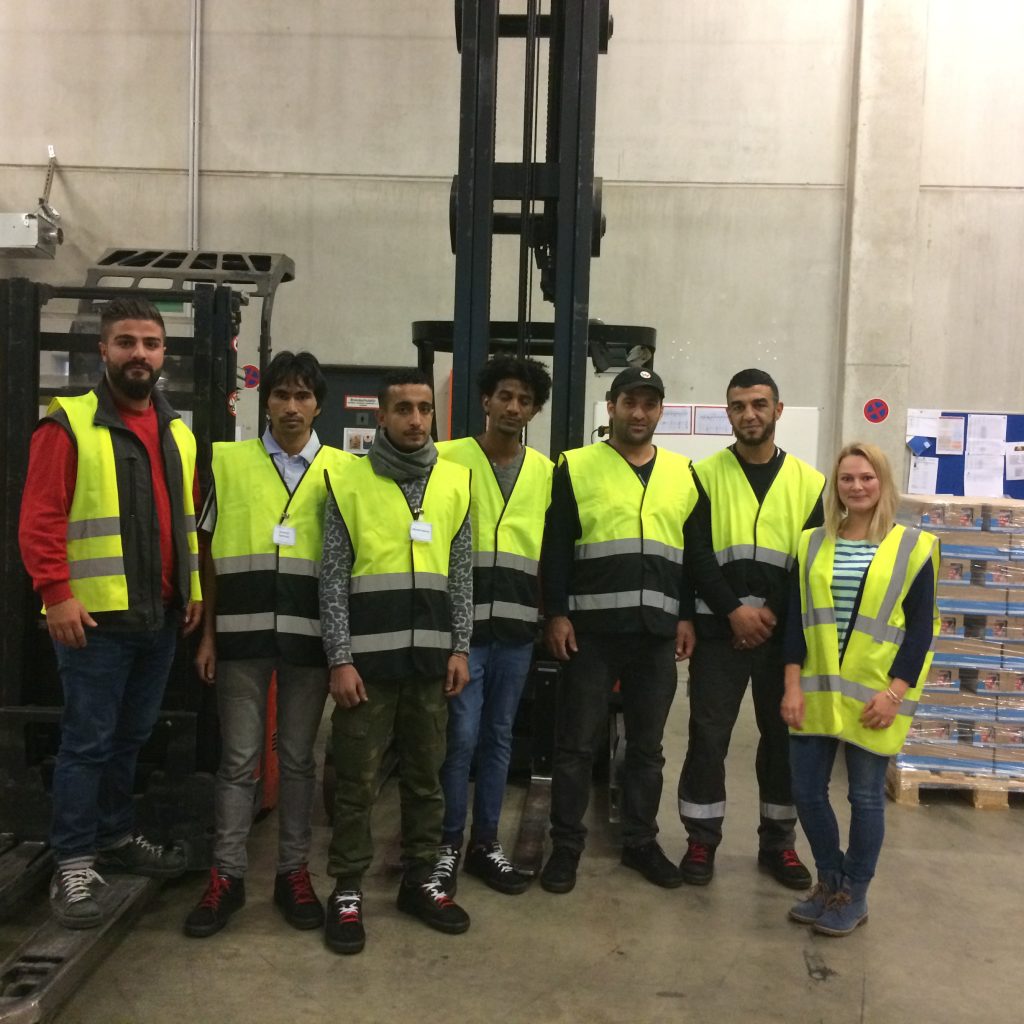Qualification project in Bremen for eleven male refugees
Bremen, 4th November 2016. Helping refugees on their road to learning an occupation and freeing them of their dependence on government support: Together with the Bremen-Bremerhaven Employment Agency and the Bremen job centre, Fiege Logistics has started a six-month qualification project aimed at integrating displaced persons into a working life at its facility in Bremen. Eleven refugees from Egypt, Syria, Somalia, Eritrea and Afghanistan have started working at the Bremen freight centre (GVZ) on 11th October. What is so special about this: all eleven men will receive 3.5 hours of language training a day and will learn about warehouse and logistics basics for a further 3.5 hours.
Until April 2017, the men aged between 20 and 44 will be trained and shall receive the minimum wage of € 8.84 per hour. For the hours spent learning German, they will receive 50 per cent of their hourly wage. Fiege will also contribute towards the cost of the language training, which will be held in the conference room at Fiege’s location on Ludwig-Erhard-Strasse 22. “A tutor from a Bremen language school will come here and teach the displaced persons,” explains the branch manager, Frank Breth, adding: “The advantage of this approach is that the employees can take classes immediately before or after their shift.”
Mentors assist with settling in
The refugees will be divided into two groups so that five will be on early shift and six on late shift – switching things around the week after. Mentors who speak the native language of the new employees will assist them with settling into the daily work routine at Fiege. “We are a multi-cultural location which means we have all languages covered”, says Breth. “Our employees were immediately happy to help.” Small groups of three refugees each have one dedicated mentor.
Irina Tveretinova oversees the organisation of the refugee project. She has a Master’s degree in Business Management from Bremen University of Applied Sciences and currently works at Fiege as a student assistant. Her first impression is a positive one: “All participants are very nice, friendly, polite and display a high willingness to learn. They also have constant support from their contact person and mentors at the warehouse.”
Continued employment a possibility
Fiege’s branch manager, Frank Breth considers the development of the new employees as something positive: “The refugees that are here with us now are highly motivated and we see this as an opportunity to tie them closely to us and employ them here even once the project has come to an end, or even to train them further.” About the commitment of his colleagues, Breth had to say this: “I am proud of our employees who so willingly support their fellow countrymen as mentors and I am glad that we have found an ideal contact person for all persons involved in this project in Ms Tveretinova, who herself is from St. Petersburg and is very familiar with the local immigration authorities.”
